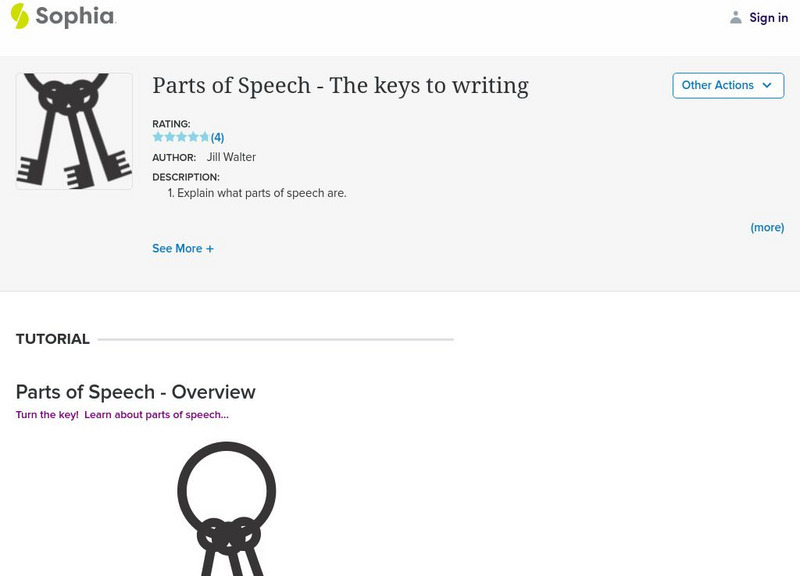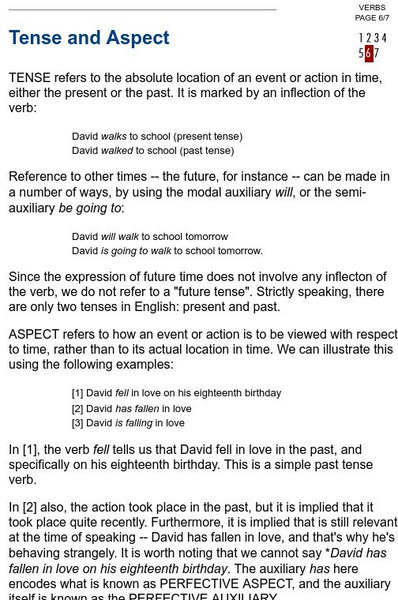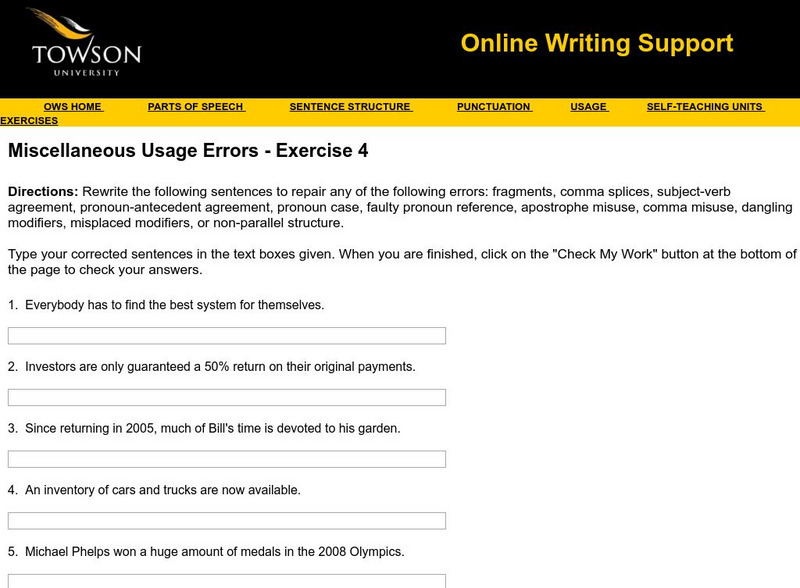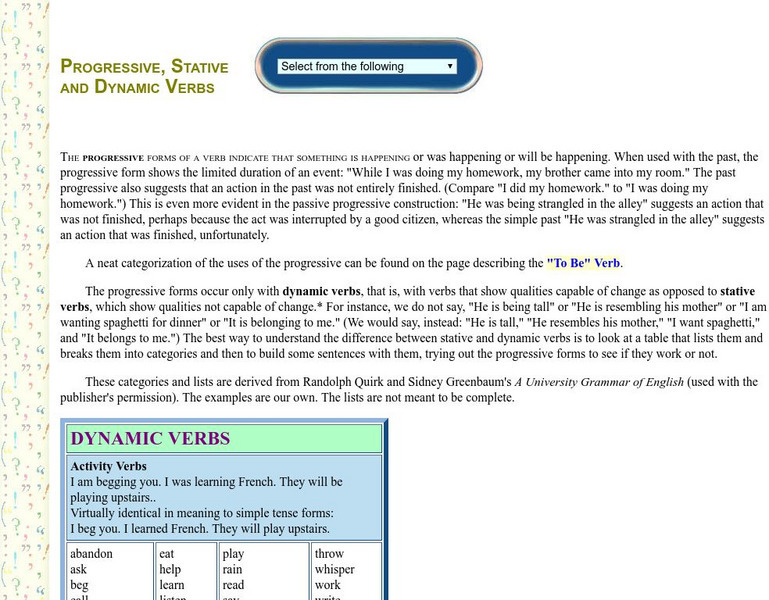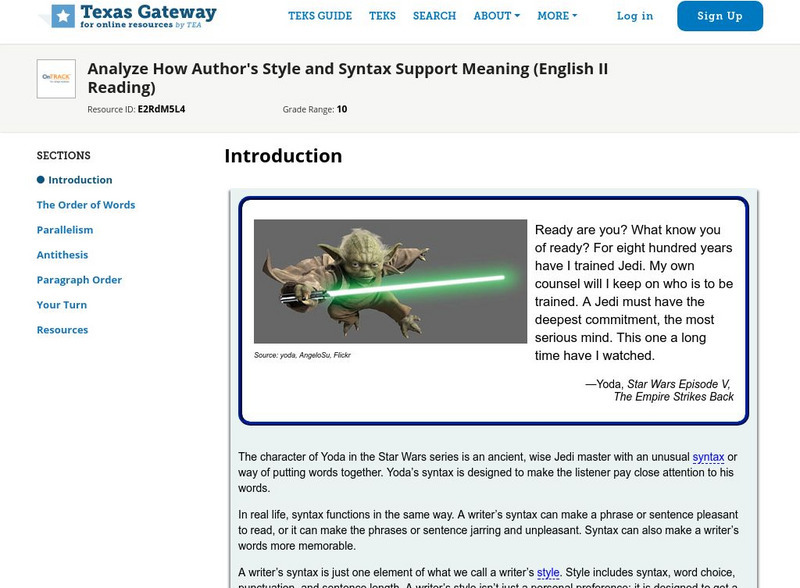Grammarly
Grammarly Blog: Common Verb and Preposition Combinations
This Grammarly Handbook resource provide numerous examples of common combinations of verbs and prepositions.
Grammarly
Grammarly Blog: Idioms and Phrases
An explanation and examples of idioms and how to use context clues to understand their meanings.
Grammarly
Grammarly Blog: Verb Forms
This page explains the five forms of verbs: root, third-person singular,present participle, past, and past participle and provides examples of each.
Grammarly
Grammarly Blog: Imperative Verbs: Definition and Examples
An explanation and examples of imperative verbs.
Grammarly
Grammarly Blog: Sometime, Sometimes, and Some Time
An explanation with examples of using the words "sometime," "sometimes," and "some time" correctly in sentences.
Grammarly
Grammarly Blog: Main Verbs
An explanation with examples of main verbs and how they are used in sentences.
Grammarly
Grammarly Blog: Subjunctive Mood
An explanation and examples of writing in subjective mood.
Grammarly
Grammarly Blog: Misuse of Like and As
An explanation with examples of using the words "like" and "as" correctly in sentences.
Grammarly
Grammarly Blog: Linking Verbs
An explanation and examples of linking verbs and how they are used correctly in sentences.
Grammarly
Grammarly Blog: With Sense Verbs
This page explains the use of adverbs and adjectives with verbs of the five senses and provides examples.
Grammarly
Grammarly Blog: Connecting Sentences
This Grammarly Handbook resource provides ways to connect sentences using transition words and punctuation (colons and semi-colons). Includes a list of transitional words and their uses, and a discussion of how punctuation is used to...
Sophia Learning
Sophia: Parts of Speech
This tutorial focuses on the parts of speech; it provides 6 short slideshows: the first is an overview of parts of speech, the other 5 are for each of the following parts of speech: nouns, verbs, adjectives, adverbs, and conjunctions;...
Sophia Learning
Sophia: Selecting Topics for Literary Analysis
A series of three PDF documents providing definitions of commonly used terms when preparing to write a literary analysis, explaining how to comment on a literary text, and demonstrating the process of analyzing the literary text "Hills...
BBC
Bbc: Skillswise: Verbs
This Skillswise site focuses on verbs. Included are a video about why identifying verbs is important, fact sheets and worksheets for instruction, and quizzes on the information presented. The Skillswise sites from BBC are geared to...
Annenberg Foundation
Annenberg Learner: Syntax Store
The colors listed in the boxes represent different parts of speech: noun, verb, adjective, adverb, etc. Figure out which colors represent which part of speech and then use the colors to create proper sentences.
Education Development Center
Tv411: Vocabulary: Roots and Their Families
There are three activities in this lesson: 1) read root words and definitions, and type root into the box to complete the sentence; 2) drag root into box to complete the sentence; and 3) determine meaning of new word based on meaning of...
University College London
University College London: Survey of English Usage: Verbs Tense & Aspect
This site has information on the tense and aspect of verbs. Includes a short exercise to test your knowledge.
Towson University
Towson University: Ows: Miscellaneous Usage Errors Exercise 4
This is a 10-question, self-grading exercise/quiz on correcting sentences with Miscellaneous Usage Errors.
Capital Community College Foundation
Guide to Grammar and Writing: Progressive Form of Verbs
Information and examples of progressive, stative, and dynamic verb usage in the English language.
Texas Education Agency
Texas Gateway: Analyze How Author's Style and Syntax Support Meaning
Analyze how an author's style and syntax support meaning in a text. RI.9-10.3 author unfolds. CCSS.ELA-Literacy.CCRA.L.3
Texas Education Agency
Texas Gateway: Applying Word Study Strategies (English I Reading)
Apply previous lessons, (1) Linguistic Roots and Affixes, (2) Denotation and Connotation, (3) Origins and Meanings of Foreign Words, (4) Cognates, and (5) Reference Materials, to improve fluency and comprehension.
Texas Education Agency
Texas Gateway: Literary Terminology: Practice 5 (English I Reading)
[Accessible by TX Educators. Free Registration/Login Required] You will practice using terminology critical for comprehension, interpretation, and analysis of poetry, drama, and fiction.
Texas Education Agency
Texas Gateway: Analyze How Author's Style and Syntax Support Meaning
Analyze how an author's style and syntax support meaning in a text. RI.9-10.3 author unfolds. CCSS.ELA-Literacy.CCRA.L.3














